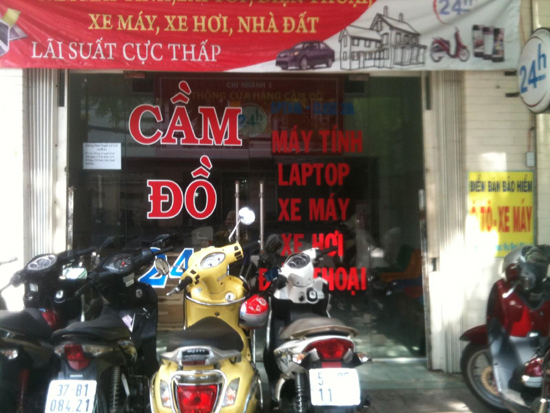The Prime Minister has released a directive to fight loan sharks who are targeting vulnerable people.

The Prime Minister has released a directive to fight loan sharks who are targeting vulnerable people.
‘Black credit’ crimes and violations negatively affect the social and economic safety, noted the Directive 12/CT-TTg.
‘Black credit’ criminals have taken advantage of means of telecommunications in the form of financial support businesses to offer loans with very high interest rates of between 100 and 700 per cent per year in order to earn big from those who need cash.
Under the Directive, Prime Minister Nguyen Xuan Phuc has asked to enhance socio-economic development security, and encourage the people to take part in breaking down ‘black market’ violations to protect the rights and benefits of people from that type of crime.
Government agencies are requested to further raise the public awareness of civil lending and warn people of individuals and organisations with lending activities and methods focusing on extremely high interest rates and illegal debt-collecting actions.
Government agencies and officials must strictly follow the regulations and laws on capital lending and borrowing. They are forbidden from joining businesses, groups and organisations that involve in capital funding, and from helping those groups carry out ‘black lending’ activity.
The PM also asks the State Bank of Viet Nam (SBV) to popularise its policies and regulations on bank lending and low-interest rate loan packages. The SBV must work with the Government to develop and diversify bank’s lending packages and products for the market.
The SBV is also assigned to develop legal, healthy financial companies and organisations. Those units must be strong enough to cover all regions to meet local people’s demand of capital, which contributes to stopping operation of the so-called 'black credit'.
The SBV is also asked to maximise the amount of money raised from local people, develop new technologies that enable people to get loans and make payments on electronic platforms, and simplify lending procedures to ease funding accessibility for all people and businesses.
The Prime Minister has also asked the Ministry of Planning and Investment must work with the police to tighten the management and business registration for pawn shops and inspect financial support businesses to prevent violations, and provide business information to the police for investigation of penal economic cases.
Provinces and centrally-run cities are asked to update their social welfare policies, develop new rural standards, reduce poverty, create jobs for local people, prevent 'black credit' criminals and other malpractices.
The Ministry of Public Security is asked to work with other ministries, government agencies and local authorities to educate people and businesses about ‘black credit’ and raise awareness of the legal policies and regulations.
Cities and provinces’ departments of public security must co-operate with other local authorities to establish inter-sectorial working units to inspect pawn shops and financial support businesses that are suspicious of ‘black lending’ so that crimes and violations are discovered as early as possible.
Local police offices and authorities must also tighten the licensing and management of pawn shops and financial support businesses. For those that violate the law, their licences must be revoked. — VNS





